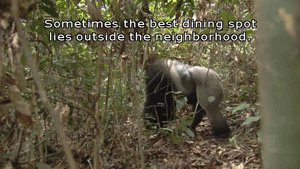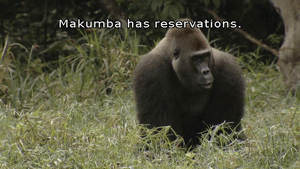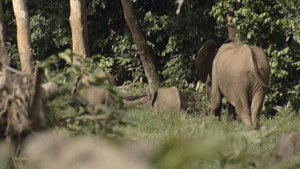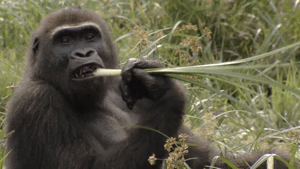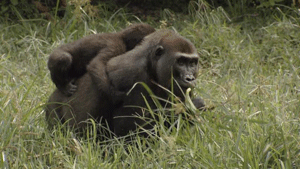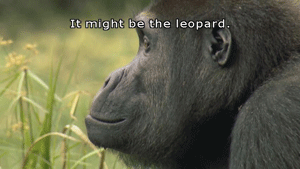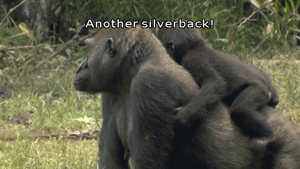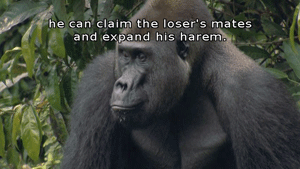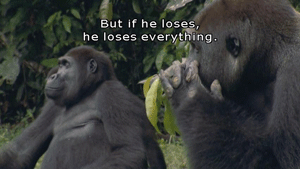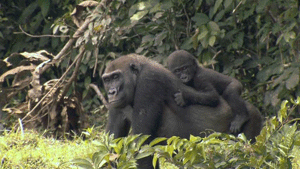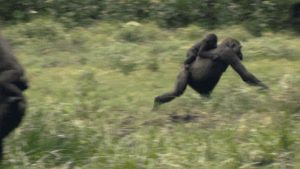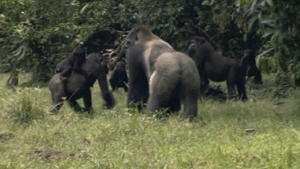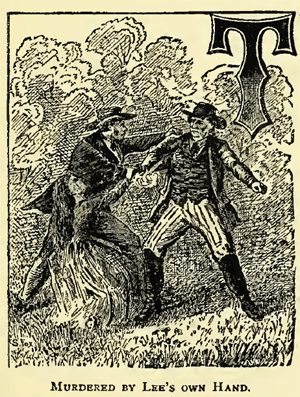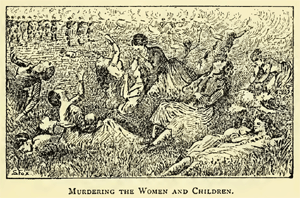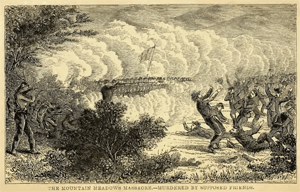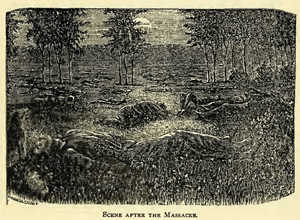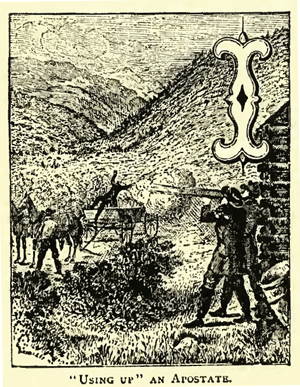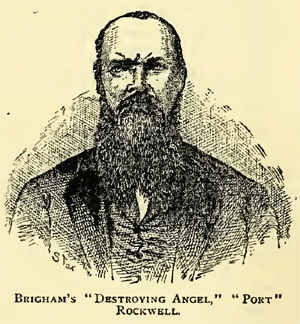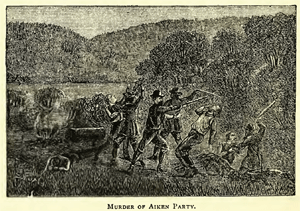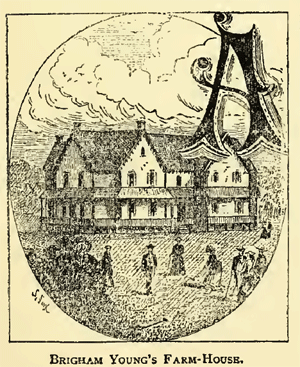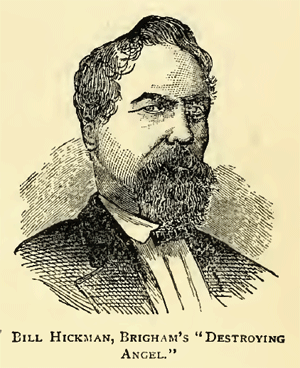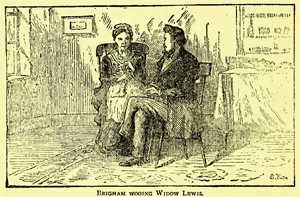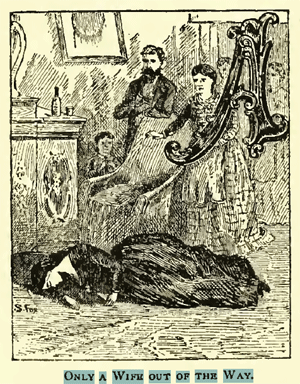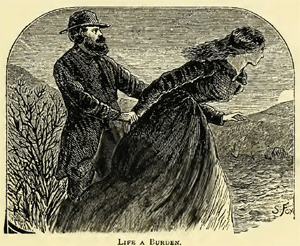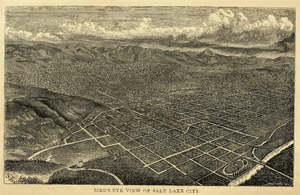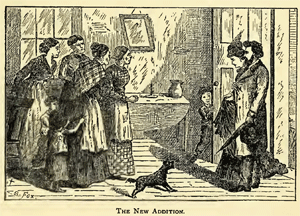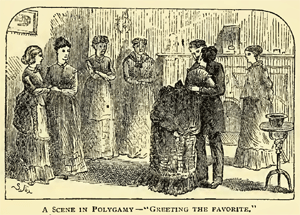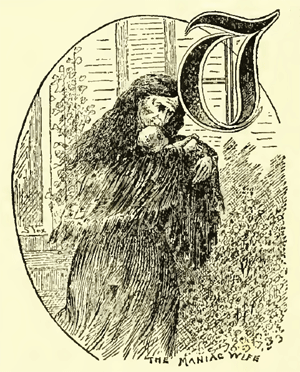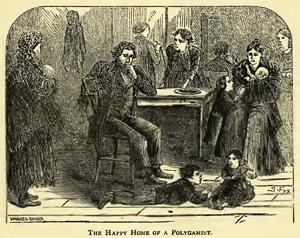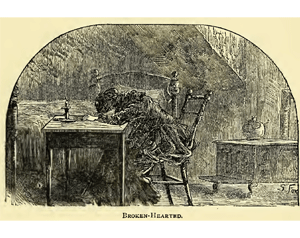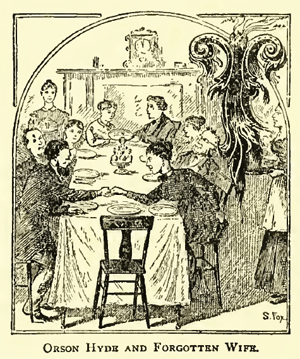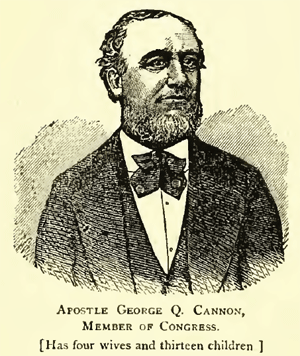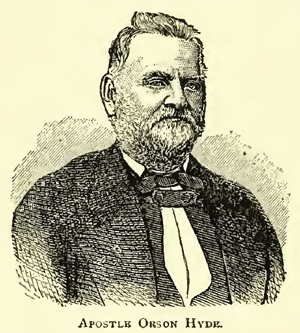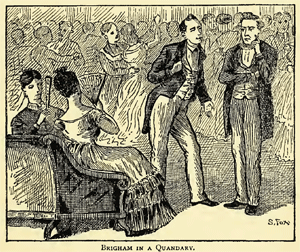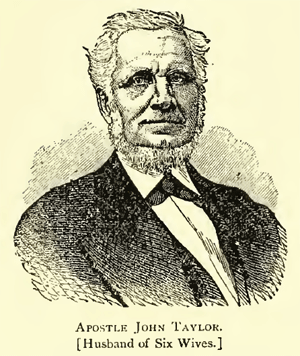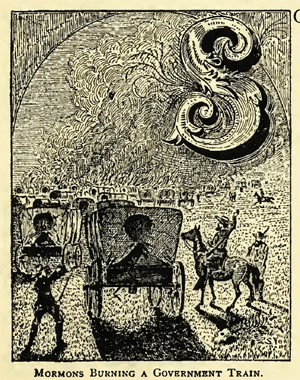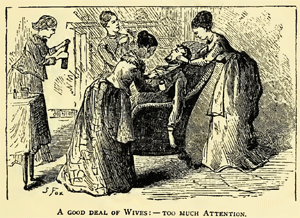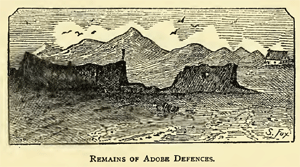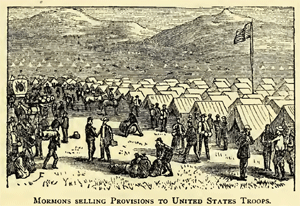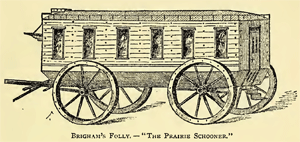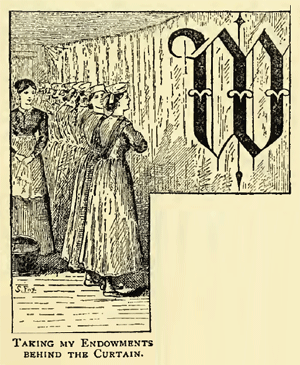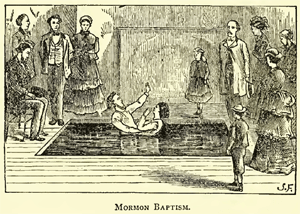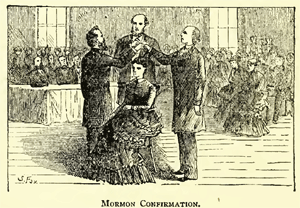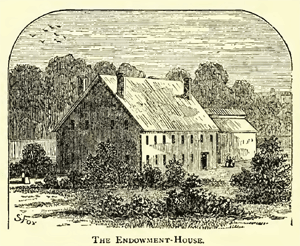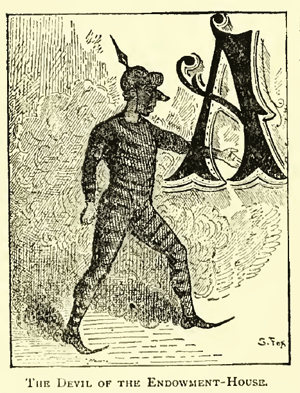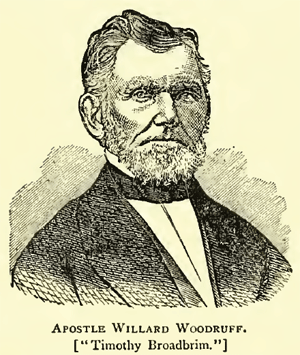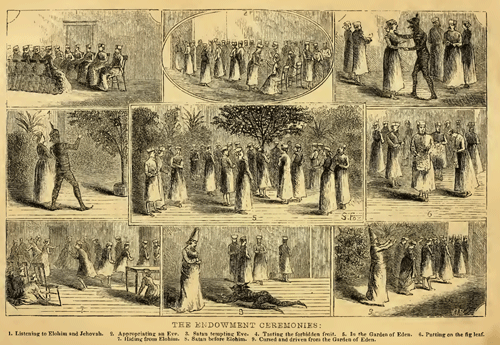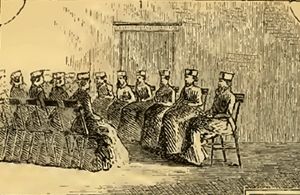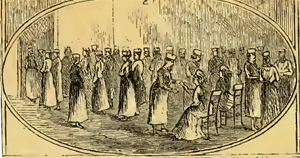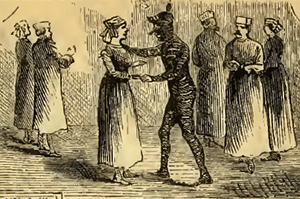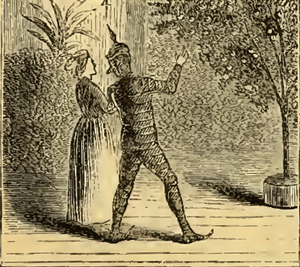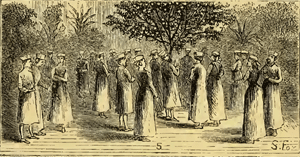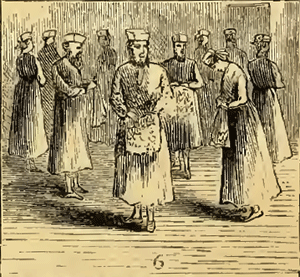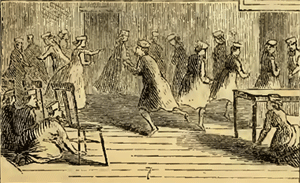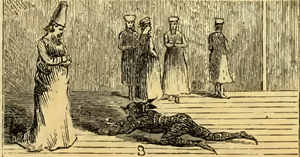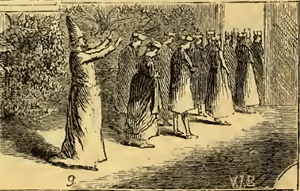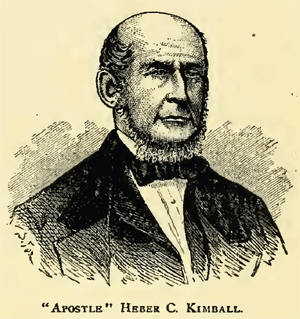The Results of the Reformation. The Story of a Fiendish Deed. The People's Mouths Closed. How the Dreadful Crime was Hushed Up. Judge Cradlebaugh's Efforts to Unravel the Mystery. Who were the Guilty Ones? The Emigrants on the Way to Utah. The People Forbidden to sell them Food. They Arrive at Salt Lake City. Ordered to Break Camp. In need of Supplies. Who was Accountable? Why the Mormons hated the Emigrants. The Story of Parley P. Pratt. How he Seduced McLean's Wife. Their Journey to Cedar City. Hungry and Weary, but still Pressing On. They Reach the Mountain Meadows. Attacked by “the Indians." The Emigrants Besieged. Dying of Thirst. Two little Girls shot by the Mormons. An Appeal for Help. The Last Hope of the Besieged. Waiting for Death.
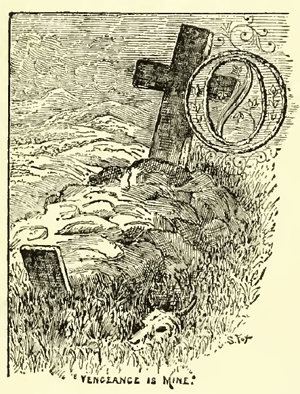
"VENGEANCE IS MINE."
Of all the numberless atrocities that succeeded the Utah Reformation, and were the direct outgrowth of the teaching of the revolting doctrine of the "Blood-Atonement," nothing approaches in fiendish barbarity the Massacre at the Mountain Meadows, where, on the 17th of September, 1857, a company of emigrants from Arkansas and Missouri, on their way to California, were assassinated in the most cruel and treacherous manner, by a band of disguised Mormons and Indians, under the leadership of officers of the Mormon militia.
Nearly eighteen years have passed, and until within a comparatively short time, little has been definitely known concerning the details of the massacre, either by the Gentile world, or by the mass of the Mormon people, who, to give them the justice which they deserve, would have shrunk with horror from the very idea that the commission of the terrible deed could be laid to the charge of their beloved church.
I was but a child at the time, but I recollect, perfectly, hearing that an emigrant-train had been attacked by the Indians, and all members of the band, with the exception of a few of the smaller children, killed; and I remember, also, seeing these children, who were said to have been taken from their Indian captors by Mormon officers, and were to be cared for by the Mormon people. I suppose the remembrance is the more vivid because, before their arrival in Utah, the people were forbidden by Brigham Young and his elders to sell them anything during their journey through the Territory, and this was so unusual a command that it was a matter of wondering conjecture to most of the Mormons, although no one dreamed of questioning the justice of the Prophet's mandate.
Young as I was, I felt the mystery that shrouded the whole horrible transaction, and I knew instinctively, as did many others, that something was being hidden from the mass of the people, by their leaders, which it was not deemed prudent to reveal; but the terrible truth was not then even suspected by the faithful Saints. I can understand now, as I could not then, why all wonder concerning this wholesale murder was speedily hushed up; why any definite mention of it was avoided by the leaders in the church; why, when it was spoken of at all, it was with cautious manner, apprehensive glances, and in whispered tones under the breath. Priests and people alike hesitated to approach the dreaded subject, and there was an almost superhuman endeavor on the part of the church authorities to erase all remembrance of it from the minds of their followers. But occurrences of this kind are not easily forgotten, and the memory of that bloody and unprovoked butchery is still fresh in other minds besides my own, retained there so distinctly that neither time nor eternity can obliterate it. The very mystery which veiled it made it more awful to me, an imaginative, excitable child; and though I followed the example of my elders, and never spoke of the subject, even to my mother, it haunted me perpetually, and I grew absolutely terrified at the constantly recurring fancies which I drew of it.
Although the people were so quiet, since there was a tacit understanding that they must be so, yet their eyes nor ears were never closed, and thought was by no means idle. Indeed, as the years have rolled on, what was at first a vague suspicion, which it seemed a sin to entertain, has grown to a horrible certainty, until to-day it stands forth; stripped of all its first mystery, fearfully vivid in its monstrosity, the foulest of all the foul blots upon the unclean page of Mormon history. It was a deed unparalleled in its atrocity; unapproachable in the treachery employed by its perpetrators; more horrible in its sickening details than the butcheries by the most barbarous savages; the work of fiends rather than of men; and yet so successful has been the "quiet" policy of the Mormon leaders, that I find the extent of its horrors but dimly understood east of the Rocky Mountains.
Attempts were made by Judge Cradlebaugh to discover the perpetrators, and, above all, the instigators of this deed, and bring them speedily to justice; but with a Mormon jury, blinded by their bigotry, who were taught from the pulpit that allegiance to the church and Brigham Young was paramount to all their duties and obligations to the government of the United States, whose citizens they claimed to be, that perjury to that government would be forgiven by the priesthood, indeed was counselled by it, and that no Mormon was to be delivered over to Gentile justice, no matter what his crime might have been, nor how distinctly it was proved, it followed naturally enough that the efforts, earnest and untiring as they were, were utterly fruitless.
Judge Cradlebaugh's last attempt to ferret out the affair was made in 1859; and since that time no action has been taken by the government until last autumn, when the long-smothered suspicion broke forth into audible accusations, and in this new burst of popular demand for justice, the supposed leaders were arrested. I inadvertently said "supposed" leaders; but it has been shown beyond the possibility of a doubt that John D. Lee, a major in the Mormon militia, and one of the most active and zealous of Brigham Young's devoted adherents, led the attack in person; that many of the victims fell by his hand; and that he, assisted by Bishop Haight and the notorious Dame, acted under instructions from "a higher authority." The plans of massacre were fully matured, at a council held at Parowan, by Brigadier-General George A. Smith, first counsellor to Brigham, and a fit servant for such a master, Colonel William C. Dame, Bishop of Fillmore, Lieutenant-Colonel Haight, President of the Cedar City "Stake of Zion," Bishop Higbee, and John D. Lee.
Of all these men, Lee, who is now under arrest, has been the most closely identified with the massacre, in the public mind, until he has grown to be an object of popular aversion, shunned and dreaded. It may seem childish, but so strong a hold had this affair taken on my imagination, that I have never been able to shake off the feeling of terror with which it filled me; and when, last autumn, I was told of his arrest, and knew that he was safe inside prison walls, I positively experienced a feeling of relief and personal safety, as great as though some enemy of my own had been rendered powerless to harm me. I had never even seen the man; but knowing the record of his crimes, and always hearing of him in connection with some deed of bloody brutality, my horror and fear of him never diminished, and he remained, what he had always been, the ogre of my childish fancies.
It is a horrible story, sickening in its every detail; but it cannot be told too often, until it shall be known all over the country by every person who is ignorant of it now.
It was early in September, 1857, when it was first announced in Salt Lake City that a large emigrant party from Missouri and Arkansas had entered the Valley on their way to California. As soon as the announcement was made, a command was issued by the President of the church, that nothing was to be sold to any member of this party, on the pain of death. The command was most arbitrary, and was totally without precedent, showing beyond a doubt the animus of Brigham Young towards this party, and rendering it much easier to believe that the terrible tragedy which followed was approved, if not instigated, by him.
Salt Lake had been for a long time the depot for obtaining fresh supplies prior to crossing the deserts which separated Utah and California. Every emigrant train which had crossed the plains for some years, had made this a resting-place, and taken a fresh start from here for the remainder of the tedious journey. Much money was left in this way in the Mormon country, and, as usual, Brigham Young got his, the "lion's share," of all the profits.
This train, like all that had gone before it, had laid their plans to supply themselves for their journey at Salt Lake City, and had only brought a sufficient quantity of provisions to last them until they reached that point. Greatly to their surprise, they found themselves unable to purchase anything, and, in addition, were peremptorily ordered to break their camp at Salt Lake and move on. All through the country of the Saints they were met with sturdy refusals to sell them anything. Men who would gladly have placed a quantity of provisions at their disposal dared not do it, fearing to disobey their Prophet's mandate. In vain the emigrants offered them money, wagons, personal property of all kinds. Brigham's law was not to be broken, and the person who should venture to disregard it pronounced his own death sentence. Now and then, however, one more humane or more daring than the rest, came to the camp at night with a small amount of provisions all they could bring without danger of detection; but what was this little to one hundred and fifty hungry men and women, to say nothing of the little children who were to be fed? It might have met a present want, but it did nothing towards providing for future needs. Starvation was staring them in the face while they were journeying in the midst of plenty, for it is a notorious fact that the harvests never were more plentiful in Utah than they were that year.
Whatever may have been Brigham Young's connection with the massacre itself, — whether it was done at his instigation or merely with his connivance, — he was, to all intents and purposes, the murderer of these people, and should be held responsible for their lives. What right had he, the governor of the Territory of Utah, appointed to office by the United States Government, amenable to its laws as a citizen, much more so as an office-holder, bound by an oath of loyalty to protect every person within the limits of his territory, to refuse food to peaceful, law-abiding citizens of the same government, knowing, as he did, that here was their only opportunity to obtain it, and that certain death was their fate if compelled to cross the desert with the scanty rations which remained to them?
The treatment of these people from the moment of entering Brigham Young's dominions until the final tragedy, was so barbarous, and attended with so many horrors, that the Mormon people, contrary to their usual custom, feel obliged to offer some excuse in extenuation. But all the reasons which they give, when combined, are entirely insufficient to justify the deed. Yet, such as they are, they shall be given.
The "Reformation" was over, and the doctrine of the "Blood-Atonement" was still in full force. Young and his confederates were infuriated because United States troops were ordered to Utah. They considered this act of the government an open insult, and they revenged it on the first Gentiles whom they could reach. The train was one of the largest and richest that had ever crossed the plains. The value of their wagons, horses, and stock alone was said to be $300,000, and the women of the party had rich, full wardrobes and elegant, costly jewelry. Brigham, as you have seen, ignores the tenth commandment, and the sixth is a dead-letter to him; to covet his neighbors' goods is to possess them in some way or other, either honestly or otherwise,— generally otherwise.
A part of the emigrants were from Missouri, and the Mormon people will never regard the Missourians in any other light than that of the bitterest enemies. They had never, in all the years, forgotten the persecution which they received at their hands, and Joseph Smith's death they considered unavenged. It was reported that in the train was a man who had openly boasted of having been present at the assassination of Smith, and that he as openly threatened to take the life of the present prophet. This story is generally believed to be utterly without foundation, circulated by the Mormon leaders to stir up the wrath of the people against the emigrants, and to exonerate themselves, if their share in the slaughter of these people should ever become known. The Arkansas members of the train, also, were objects of Mormon vengeance.
Parley P. Pratt, one of the twelve apostles, and also one of the brightest intellectual lights in the Church of the Latter-Day Saints, was sent on a mission to California, where he proselyted with such vigor that many converts were made; among them a Mrs. Eleanor McLean, wife of one Hector McLean, and the mother of three children, who was induced to embrace Mormonism and polygamy as embodied in the person of the seductive apostle. The command to "leave all and follow me" was readily obeyed, especially as she was personally to add to the missionary's present pleasure and future glory, by becoming one of his numerous plural wives.
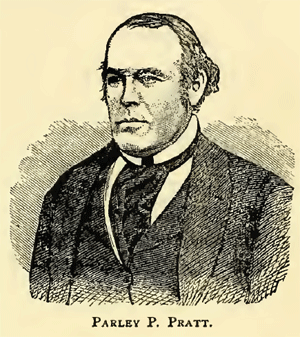
PARLEY P. PRATT.
As there was no authority to marry them in a "legal" manner in this Gentile state, they were obliged to defer that ceremony until their arrival in "Zion." But in cases like this, which were often occurring to the missionary Saints, it was considered quite proper for the pair, who were in haste to wed, to covenant together," and thereafter to be regarded as man and wife, without ministerial or judicial aid, until such time as they could celebrate their nuptials in the presence of saintly witnesses, and after the true saintly fashion. This covenant the Apostle Pratt and Mrs. McLean were not slow to make.
The news soon reached the husband that his wife was going to Utah with the Mormon Elder, and intended taking the children with her. This last design McLean frustrated by sending them to some relatives in one of the Southern States. He then informed his wife that she was at liberty to go where she chose, but that she must go alone, as he had placed the children beyond her reach.
She came to Utah, and immediately on her arrival was sealed to Parley, after having lived under a covenant with him for months. The mother-heart, however, yearned for her children; neither her new religion nor the fractional part of an apostle could fill the void left by the separation from them, and she determined to gain possession of them and bring them also to Utah. After much entreating, she succeeded in inducing her new husband to go to the States with her for the purpose of finding them. She went alone to the place where her children were at school, leaving Pratt in Arkansas, -- which, by the way, was her husband's home. On reaching the town where her children were, she was obliged to assume a disguise, as McLean was there, having followed his children from California. She used every stratagem to obtain them, but only succeeded in carrying away one. She quickly made her way with him to Arkansas, and joined Parley, who was awaiting her there. Together they started to return to Utah, but were overtaken by McLean, who, maddened by the breaking up of his home, the seduction of his wife, and the abduction of his child, determined to wreak summary vengeance on the man who, under the guise of religion, and in the name of the Lord, whom he constantly blasphemed by taking His holy name upon his polluted lips, had wrecked his whole life's happiness. Being examined before a magistrate, Mrs. McLean Pratt assumed all the responsibility of the abduction of the children, and the Apostle was honorably discharged. His friends, however, apprehended danger, and advised him to escape, if he could, for McLean was a violent man. They also offered him a couple of revolvers for his defence.
The Apostle fled, but McLean was on his trail. At length the wronged husband came within sight of his enemy, and pursued him like the avenger of blood. Pratt left the public road, endeavoring to reach a house not far distant; but McLean was too swift for him. Following him closely, with revolver drawn, he fired at the saintly seducer, but failed to touch him. Furious at Pratt's escape, McLean urged forward his horse, and, as he passed his enemy, made a lunge with his bowie-knife, and gave him a fatal thrust in his side. The wounded man fell from his horse instantly, and McLean fired again at the guilty wretch as he lay bleeding on the ground, and the ball penetrated his breast.
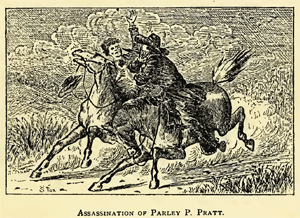
ASSASSINATION OF PARLEY P. PRATT.
The bloody deed performed, McLean returned to Fort Smith, walked through the town with his friends, and in the evening took the passing steamer for the South. He took his child and left the mother to return to Utah, now doubly widowed and childless. The people of Arkansas upheld McLean, and it was considered that he had only done his duty in ridding the world of such a wolf in sheep's clothing.
Makumba heads out in search of his supper.
Sometimes the best dining spot lies outside the neighborhood.
Today he finds a small clearing …
with a big obstacle …
forest elephants.
Makumba has reservations.
Elephants can charge if they feel threatened,
and he takes no chances with his family.
Now the family can enjoy their salad …
[Rustling]
… until a sudden sound disrupts the picnic.
It might be the leopard.
The little ones grab their moms.
Another silverback!
This could mean all-out war.
Makumba has to make a tough decision.
If he faces off against his opponent and wins,
he can claim the loser’s mates and expand his harem.
But if he loses, he loses everything.
He weighs his options
before calling his clan back.
[Grunting]
Turns out King Kong is a lover, not a fighter.
-- Wild Congo: King Kong's Lair -– Illustrated Screenplay (Vignette), by National Geographic
But the Mormons were deeply infuriated; they held every Arkansas man personally responsible for the murder of their Apostle, whom they at once canonized as saint, and worshipped as martyr, and whose name, to this day, is spoken with reverence by them; and the fact that any of these emigrants were from that state, gave them, as they thought, an opportunity of revenging Pratt's death, at the same time that they avenged the murder of their Prophet. Many of them, too, were from the immediate neighborhood where McLean resided, and where Pratt was killed; and at least one of the number was said to have been interested in his assassination. The fact that Pratt had brought his death upon himself was not taken into consideration. They found no palliation for McLean's action in his wrecked home and blighted life; though no persons in the world are so quick to resent any, even fancied, interference with their families as the Mormons. Yet this is saintly consistency.
At the Parowan council, of which I have spoken, the mode of action was fully determined upon, and the plan of attack matured to the minutest detail. Meeting with the most inhospitable treatment, and unable to obtain provisions, the emigrants were fairly driven from camp to camp, until they reached Cedar City. They camped here only one day; but during their stay they were allowed to purchase fifty bushels of tithing wheat and have it ground at John D. Lee's mill. But this was an insufficient quantity, and would be exhausted several days before they could reach the nearest point in California where food was obtainable, even if they travelled with the utmost speed, and put themselves on the shortest possible rations.
From Cedar City they proceeded south-west less than forty miles, and camped at the Mountain Meadows, which they reached after a five days' journey, so exhausted were they. It was a most cheerless and dreary spot, and so hemmed in that if attacked they would be completely at the mercy of their assailants. The Meadows are about a mile and a half long and a mile wide, and are shut in on every side by mountains; but at the lower end they converge and form a canon. Cane Spring is situated just at the mouth of this canon, and about thirty rods above this spring, a mound, two hundred feet long and one hundred feet wide, shuts out all view. In the midst of this gray desolation of nature, the emigrants settled themselves down for a few days' rest and final preparation before they resumed their perilous journey.
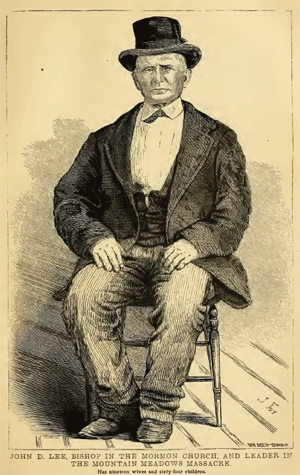
JOHN D. LEE, BISHOP IN THE MORMON CHURCH AND LEADER THE MOUNTAIN MEADOWS MASSACRE. Has nineteen wives and sixty-four children.
Beyond the annoyance they had experienced by the withholding of provisions, and their enforced march from camp to camp throughout the Mormon territory, they apprehended no ill-treatment from the Saints. I do not think the fear of personal danger had entered their minds at all, and they were resting quietly at the Meadows, when, on the morning of the 10th of September, while the women of the party were engaged in preparing breakfast, and the men in caring for their stock, they were suddenly attacked by the Indians. Seven were killed and fifteen wounded at the first fire.
As unexpected as the attack was, they did not lose for one instant their coolness and presence of mind. Had they done so, the massacre would have been general, and the entire party killed on the spot. But with a promptness unparalleled in the history of any border warfare, these emigrants wheeled their wagons into an oblong corral, and with almost lightning-like rapidity threw up the earth from the centre of the corral against the wagon wheels, making an excellent and almost impenetrable barricade.
It had been decided at the Parowan Council to make the attack at Santa Clara Canon, at the point where it is crossed by the California road, and where the perpendicular walls, which it was impossible to scale, and the blockade of their own wagons, would preclude the possibility of the escape of a single soul. But the Indian allies, "The Battle Axes of the Lord," became impatient, and precipitated the attack. The liberal promises made to them by John D. Lee, the Indian-Agent, of blankets, clothing, rifles, ammunition, and trinkets, excited their cupidity; and so eager were they to obtain the promised spoils, that they could not wait to carry out the original plan.
As soon as the barricade was finished, the first fire of the Indians was returned, and three of the assailants were wounded. They had crept very close to the train, not dreaming a repulse possible, and lay concealed in the brush along the side of the creek. Two of the Indians died, notwithstanding they were taken to Cedar City, where their wounds were anointed with consecrated oil by Bishop Higbee. For once, at least, the "laying on" of "saintly" hands was not efficacious, and the mortal wounds refused to be healed in spite of persistent priestly prayers.
The leaders of the Mormon militia, at Cedar City, were thrown into a state of excitement by the arrival of an Indian runner, bringing news of the unsuccessful assault, and they at once commenced collecting their forces to go to the Meadows to the assistance of their allies. It is said that Haight told a man that orders had come from headquarters to slay every person in the train. The Cedar City forces being considered inadequate, Lee sent to Washington for re-enforcements. When the troops were within a short distance of the Meadows, they were told that the entire company was to be killed, with the exception of the children who were too young to remember.
The Mormons were disguised as Indians, and so successfully that the unfortunate besieged had no idea that their besiegers were white men. The very knowledge of this would have disheartened them more than all the perils of their situation had power to do, when they supposed they had only a savage foe to meet, whom they hoped speedily to repulse. Safely intrenched behind their barricade, they suffered only for lack of water. The spring was only about forty rods distant, and yet they dared not venture to go to it, and the water was as unattainable as though it had been miles away. Every attempt to obtain a supply was frustrated by the reports of cruel guns, hidden behind mounds of earth. The whole rim of the basin formed by the circling hills was a masked battery sending forth destruction every time a form was seen inside the barricade. At first it was supposed only the men were in danger, and a woman of the party stepped outside the corral to milk a cow. She fell pierced with bullets. At length, their thirst becoming intolerable, they decided to send two of the little girls to the spring for water. Surely, they reasoned, they will be let to go unharmed; their youth and innocence will be their safeguard; the most barbarous savage would certainly be touched, and the hand of destruction stayed.
It might have been, had it been savages with whom they were contending; but no feeling of pity for even the children could enter the hearts of these "civilized" white men who were engaged in the "religious" warfare, and shot down their innocent victims in the name of the Lord.
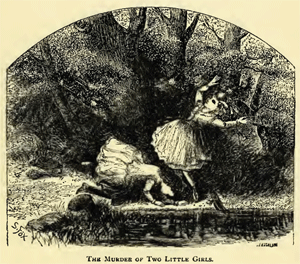
THE MURDER OF TWO LITTLE GIRLS.
Hand in hand the little ones advanced towards the spring, dressed in white, — fit robes for such lambs of sacrifice. Suddenly came the crack of scores of rifles, and the tiny bodies fell, fairly riddled with bullets, in the very sight of the frantic parents. It was deeds of this kind which, according to John D. Lee, "glorified the name of Israel's God."
Then the emigrants knew they could not expect mercy; but their courage did not fail them. If aid could only reach them! If there was any way in which they could make their situation known! They might hold out a few days, though starvation and the slow, keen torture of unallayed thirst stared them in the face. After four days of siege, they drew up a prayer for aid, telling how they had been attacked by the Indians, and how they were then surrounded; it contained a list of the emigrants' names, their age, place of birth, and residence at the time of the emigration. The number of clergymen, physicians, and other professional men were given; also the number of Freemasons and Oddfellows, with the rank of each and the name of the lodge to which they belonged. The letter was addressed to any friend of humanity; and it was a heart-rending cry of distress from souls in mortal straits. Such a cry as that could not go unheeded; it must be answered by speedy relief. It was the only expression of despair that ever came from the brave hearts in the corral; but it told of torture beyond description; of suffering that exceeds imagination.
But how should it find its way outside the barricade? How could the world be made to hear this agonized appeal? No sooner was the petition finished than three men -- all honor to their bravery! -- volunteered to break through the camp, dash past their enemy, and cross the desert to California. They more than suspected by this time that a portion of their assailants were white men, and they knew they were in more danger from them than from the Indians. It is said that, before these men started on their perilous and almost hopeless undertaking, the entire party knelt down, and an old, white-haired Methodist pastor prayed for their safety. They left the corral in the night under cover of the darkness, and passed their besiegers in safety. But in some way their flight was discovered, the Indian runners were placed on their track, and they were mercilessly murdered. The first one was killed while lying asleep from exhaustion, by an Indian named Jackson, who has since boasted of the deed, and who, in years after, led a person to the spot where he committed the murder; the body had been burned, but the charred remains of the skull and larger bones marked the spot.
The appeal was found near the dead body of the man by Jackson, who gave it to a Mormon gentleman; he kept it for some time without allowing any one to know that it was in his possession; but one day he showed it to one of the men who was nearly concerned in the massacre, and he deliberately tore it in pieces on the spot. Its first possessor has no sympathy with the deed, and expresses himself ready to come forward at any time and testify to the contents of the letter, of which he is perfectly well aware. In speaking of it to a gentleman connected with the western press, he is said to have exclaimed, "I believe that if the Masons and Oddfellows knew how many of their brethren were in the train, they wouldn't let the accursed murderers go unpunished." It must be that in some manner they will be punished.
"The mills of the gods grind slowly,"
to be sure, but they grind with exactness, and retribution is certain to follow crime sooner or later.
The other two men were overtaken at Virgin Hills, stripped of their clothing, and told to run for their lives; a shower of arrows was sent after them, wounding them severely; one could scarcely crawl, and his captors soon overtook him, and, binding him to a stake, piled fagots about him and set fire to them, and exulted with fiendish glee over the death-agonies of their victim.
The last one made his way to the camp of the Vagas Indians, who, pitying his condition, gave him clothing and food. He then tried to make his way to California, but was met by Ira Hatch and his band of Mormons and Indians, and was put to death by slow torture.
In the mean time the condition of the besieged grew worse. Day by day passed, and their sufferings constantly increased; still they kept courageous hearts, and looked for the help that must come. Their food was nearly gone, their increasing thirst was rendered more unendurable, because just beyond they could hear the ripple of the water, as the little brook danced on in merry mockery of their sufferings. And yet not a murmur of complaint was heard; men and women looked calmly into each other's eyes, and parched lips spoke words of cheer and hope, to which, alas! the heavy hearts did not respond. On one thing they were determined; they would die, but they would never surrender. Their wives and children should never be given over to such mercy as they would meet at the hands of their brutal enemies.

